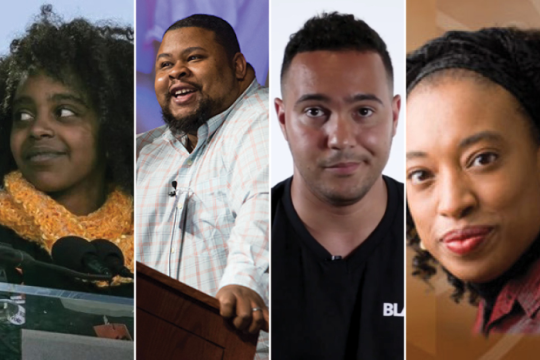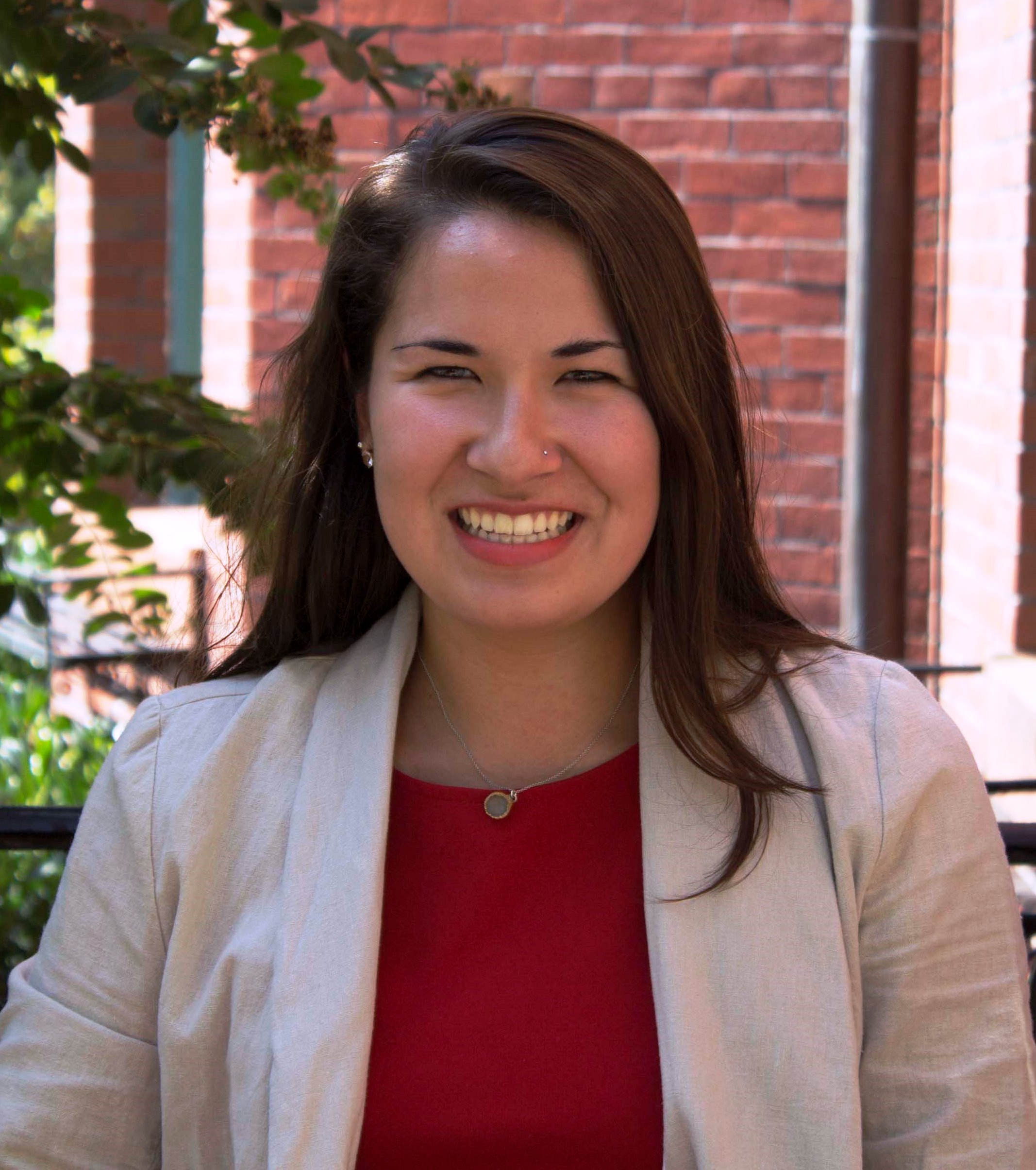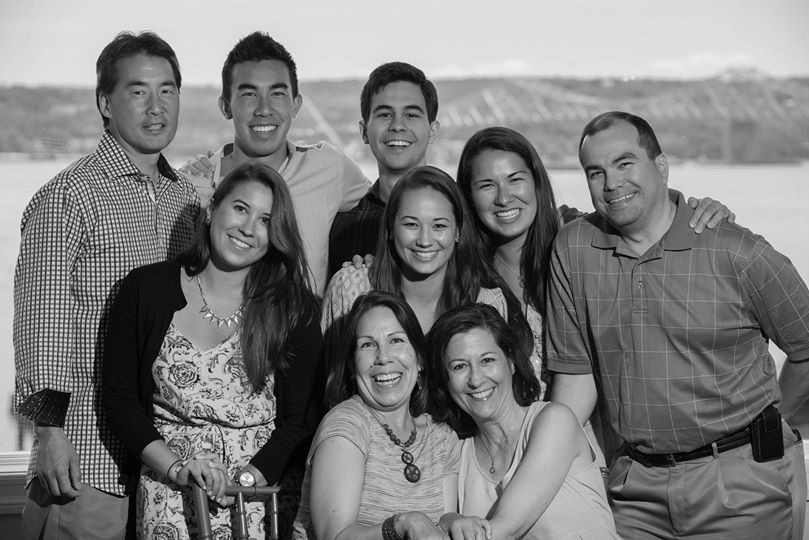
I get asked a lot if I’m “half.” Often, people are referring to my mixed Caucasian and Asian American heritage, their curiosity sparked by my Korean last name on my Jewish business card or by whatever other seeming tip arises on a given day. Other times, particularly as the holidays overlap in December and my family brings out our menorah alongside our Christmas tree, people ask whether I’m “half Jewish,” assuming my dual holiday celebration must mean some part of me is not Jewish. They couldn’t be more wrong.
I grew up active in my synagogue, doing everything Reform Jewish kids do, from religious school to youth group to NFTY in Israel to Machon Kaplan. I chose to remain connected to my faith as I grew up; now, here I am in my first job out of college, an Eisendrath Legislative Assistant at the Religious Action Center of Reform Judaism, fully committed to uplifting our Jewish voice for social justice. But yes, I also grew up celebrating Christmas, and my family’s interfaith traditions are just as much a part of me as my Judaism.
My mom grew up Jewish but celebrated both our holidays and those of her Catholic mother and cousins. She remains active in Jewish life, serving on our synagogue board of trustees and maintaining close friendships in the community. My dad was not religious growing up, and still isn’t, but he celebrated Christmas with his Chinese and Korean American family. Now, as a spouse and parent, he’s extremely supportive of my family’s Judaism. So as kids, my brother and I got the “best of both worlds,” receiving gifts for both Hanukkah and Christmas from our parents, grandparents, aunts, uncles and cousins as part of our shared tradition. With the eye for reflection that comes with maturity, I have of course realized that it’s not really about the gifts, no matter what holiday they’re for. What’s best about both worlds is family — celebrating our diverse beliefs and cultures, holidays and traditions. Perhaps most simply, we celebrate each other’s company, spending time together to laugh at old memories and to make new ones that strengthen our bond as a family.
Some of my favorite childhood memories are tied to our dual December celebrations. With lots of family living nearby, the annual Millstein/Chung Hanukkah dinner was always a big affair. I can picture clearly my mother standing in our kitchen with my Chinese American grandmother by her side as they took charge of peeling potatoes and frying latkes for 20 hungry mouths, belonging to Jews, Christians, and otherwise believers and non-believers. But attendance at Hanukkah is not always 100 percent, with college and jobs having dispersed my brother, cousins, and me up and down the East Coast over the past few years. So Christmas is special as one of just a few times a year that guarantees we’re all in one place, free to relax and to celebrate being together.
I’m grateful that my interfaith, interracial, multicultural family joins together to celebrate everyone’s beliefs and backgrounds. In fact, as I sat drafting this post, my grandmother texted to wish me a happy Hanukkah, something she does without fail for every Jewish holiday. These days, she’s one of the Hanukkah absentees, having moved to Seattle a few years ago. But she misses our Hanukkah celebrations and sometimes makes latkes just for herself. That, for me, is the spirit of December: embracing shared traditions and celebrating family.
Related Posts
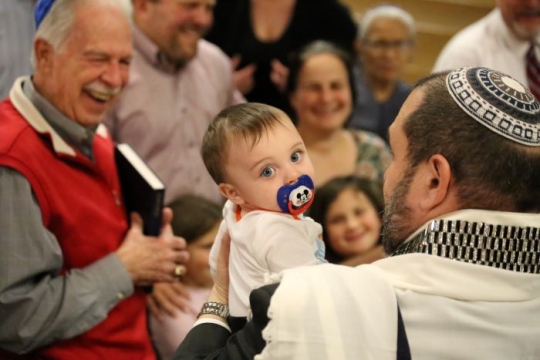
Welcoming Baby
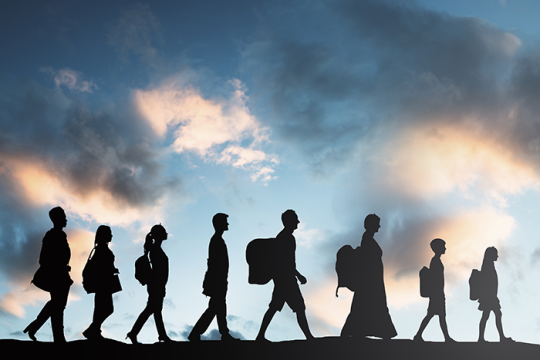
Supporting Immigrants and Refugees in This Challenging Moment
